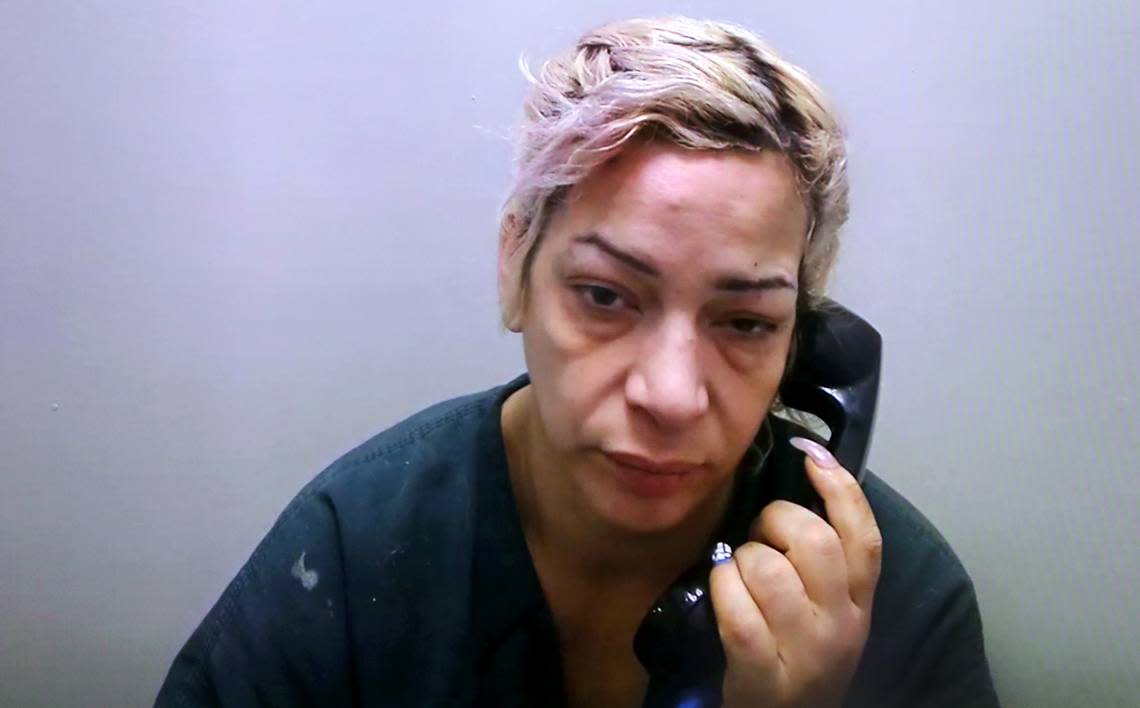‘Unspeakable tragedy.’ Tri-Cities mom sentenced for 4-year-old daughter’s fentanyl death

A Kennewick mother has spent the past six months since the death of her daughter trying to shake her addiction.
Judy Bribiescas has gone to drug treatment and shared the story with the health district since being arrested for allowing her 4-year-old daughter to get a hold of the fentanyl pills that killed her.
Judge Jackie Stam praised the 39-year-old mom’s efforts during a sentencing hearing this week in Benton County Superior Court.
Stam said Bribiescas will be given opportunities to continue to improve herself during her nearly three-year prison sentence.
“I believe that this type of crime affects you, but it affects too many more people,” Stam said during the hearing.
“It affects your son. It affects your family, who are sitting here today. It affects the first responders who were present with you that night. It affects law enforcement officers. ... It affects the people at the hospital that tried to revive your daughter. It affects the people who read about it. So it affects a lot of people.”
Bribiescas previously pleaded guilty to second-degree manslaughter. She faced a sentencing range of just over two years to two years and 10 months in prison.
Deputy Prosecutor Taylor Clark and Defense Attorney Talitha Hazelton agreed to recommend the maximum and of the range.
Four-year-old Ryleigh ingested at least two fentanyl pills while her mother and father, Joseph E. C. Walker, 31, were in the bathroom of a room at the Kennewick Econolodge using drugs on Dec. 27.
Bribiescas told police she found the child unresponsive and called 911.
She stayed with the girl until first responders arrived, while Walker fled, said officials. He was arrested about a week later.
Overdose death
While Walker had been ordered to stay away from Bribiescas, security footage showed the two of them walk into the motel room about 8:20 p.m. that day, court documents said.
Their then 8-year-old son told investigators his parents were in the bathroom for a lengthy period of time. Police believe they were using drugs at the time, court documents said.
While they were in the bathroom, Ryleigh swallowed at least two fentanyl pills. Another was later found stuck up her nose, court documents said.
Fentanyl is a synthetic opioid that is 100 times more potent than morphine and hundreds of times stronger than street-level heroin, federal officials have said.
Kennewick police tried Naloxone , a nasal spray used to reverse opioid overdoses, but it didn’t work.
Medics rushed her to Trios Southridge Hospital, less than four miles away. Doctors said she was cold to the touch when she arrived, court documents said.
They found two mostly intact pills, along with multiple pill fragments in her stomach. The pill from her nose was pink and similar to what is commonly known as “Skittles” fentanyl.
When police searched the motel, they allegedly found more fentanyl.
Bribiescas was initially charged with first-degree manslaughter, and the charge was lessened as part of the agreement. Clark explained the decision was made after a lot of discussion in the prosecutor’s office.
A key part of that decision was to avoid having to make her now 9-year-old son testify against his mother, she said.
The death has continued to haunt the child, who apologized to his grandmother for not watching his sister more closely.
“That is a guilt that no child should have to carry. He’s not responsible for the death of his sister,” Clark said.
The boy’s grandparents are taking care of him at this point.
Domestic violence and drugs
Bribiescas’ path toward drug addiction started later in her life and was prompted by domestic violence she suffered at the hands of her boyfriend, Hazelton said.
“Ms. Bribiescas is an individual whom ... members of the community have identified that they were shocked that she had landed in this position before her relationship with Joseph Walker,” Hazelton said.
She previously was a supervisor at a factory where she would send people who were intoxicated home.
Hazelton said the woman turned to drugs to deal with the abusive relationship. She said Walker threw a computer at Bribiescas, and also broke into her apartment in violation of a no-contact order.
These were only the most dramatic cases, Hazelton said. Bribiescas didn’t want Walker to get in trouble. Her family tried to intervene, but it didn’t change the circumstances.
She also noted Bribiescas stayed with her daughter and cooperated with police.
At the same time, Walker ran. While police were looking for him, he rekindled a romantic relationship and then abused that woman, according to messages taken from his phone.
Since going to jail, Bribiescas has stayed sober, and attended drug treatment.
“That sobriety is not an easy sobriety, it’s not a jubilant one. It is born of an unspeakable tragedy, which dampens even the brightness of the remaining child,” Hazelton said.
“It’s just unspeakable. You can’t quantify the pain. You cannot quantify the regret. The pain is unbearable, but she went to this treatment knowing that she wanted these skill sets and making sure she could navigate the prison process.”

